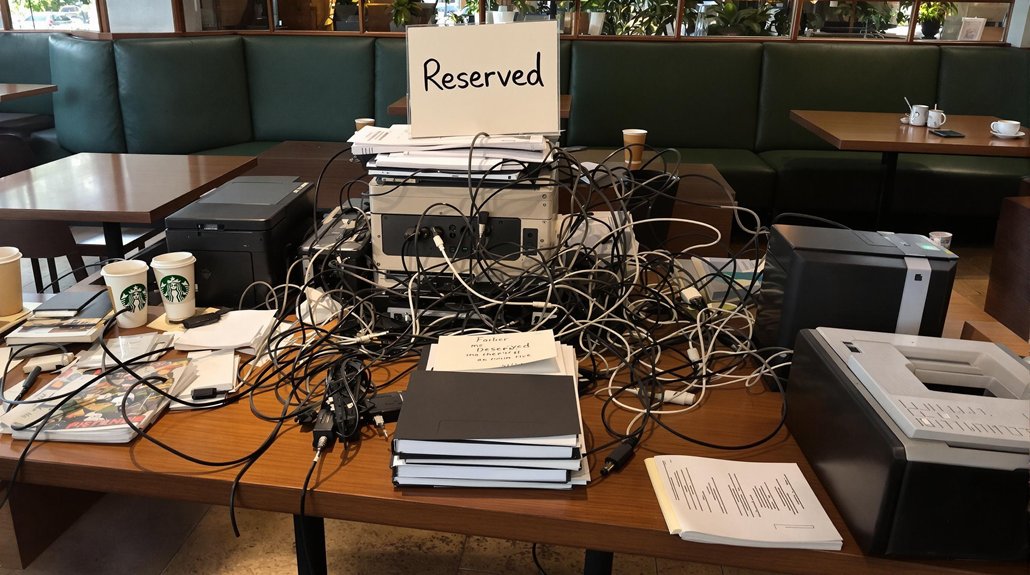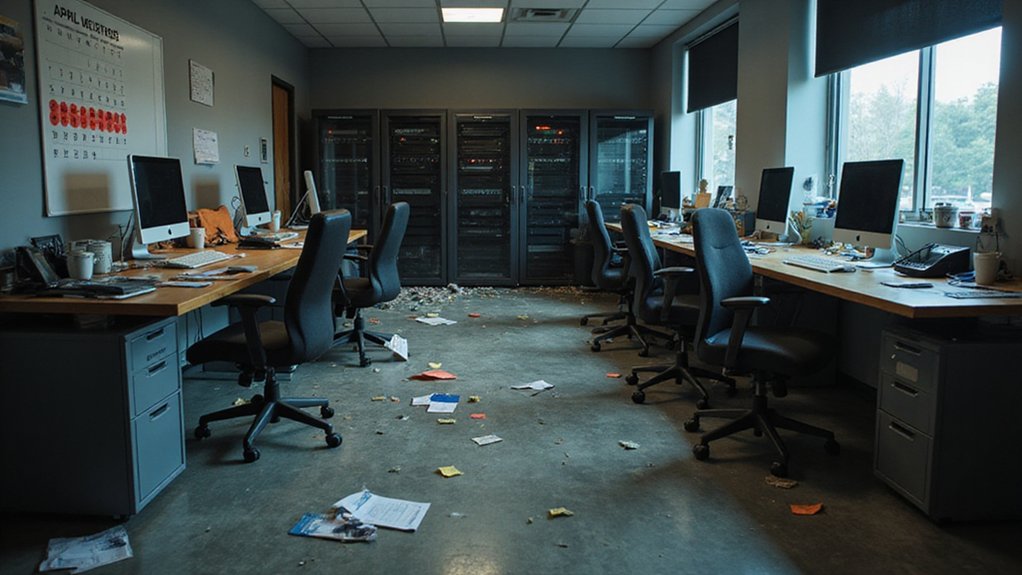AI is causing significant job displacement across multiple sectors. Recent data shows AI eliminated 3,900 U.S. jobs in May 2023 alone, with 1.7 million manufacturing positions lost since 2000. It’s now threatening white-collar professions in legal, medical, and customer service fields. While 37% of businesses admit replacing workers with AI, 91% plan to hire employees with AI skills by a shift in required job skills may determine who thrives in this technological transformation.
While companies enthusiastically adopt artificial intelligence to boost productivity, the technology is rapidly destroying jobs across various industries. In May 2023 alone, AI caused 3,900 job losses in the U.S., making up 5% of all job cuts that month. Since 2000, AI-related automation has eliminated 1.7 million manufacturing positions, highlighting a troubling trend.
The impact extends beyond blue-collar work. Medical transcriptionists and customer service representatives face projected employment declines of 4.7% and 5.0% through 2033. Legal assistants and paralegals are increasingly vulnerable as large language models take over routine tasks. Even educated professionals once considered safe from automation are now at risk.
AI’s reach extends beyond factory floors, threatening jobs previously thought secure—from legal assistants to medical professionals with advanced degrees.
British Telecom’s plan to cut 10,000 jobs over seven years by integrating AI into customer service exemplifies this change. Nearly half of U.S. companies now use ChatGPT, with 48% confirming it has replaced human workers. Large corporations are twice as likely as small businesses to implement AI solutions, primarily for cost reduction.
The financial impact on workers is severe. Automation has suppressed wages by as much as 70% since 1980 in affected industries. New AI tools may worsen wage polarization between high-skilled and low-skilled workers, with routine jobs facing the greatest threat of wage stagnation or reduction. Women are particularly vulnerable in this technological transition, with 80% of women in the workforce occupying jobs exposed to AI automation compared to only 60% of men.
Worker anxiety is mounting. A 2023 survey found 77% of respondents worried about losing their jobs to AI within a year. Globally, 30% of employees fear replacement due to rapid technological advancement. Goldman Sachs predicts that 300 million jobs could disappear worldwide due to AI, representing 9.1% of global employment. Despite widespread concern, one billion people may require completely new skills by 2030 to remain employable in an AI-dominated economy. These concerns aren’t unfounded, as 37% of businesses admit to replacing workers because of AI, and 44% expect AI-related layoffs by 2024.
Despite the grim outlook, there’s a silver lining. A striking 91% of companies using AI plan to hire new employees in 2025, but they’ll prioritize candidates with AI-related skills. This suggests a major workforce transformation rather than permanent job elimination, though the change period may be painful for many workers.









